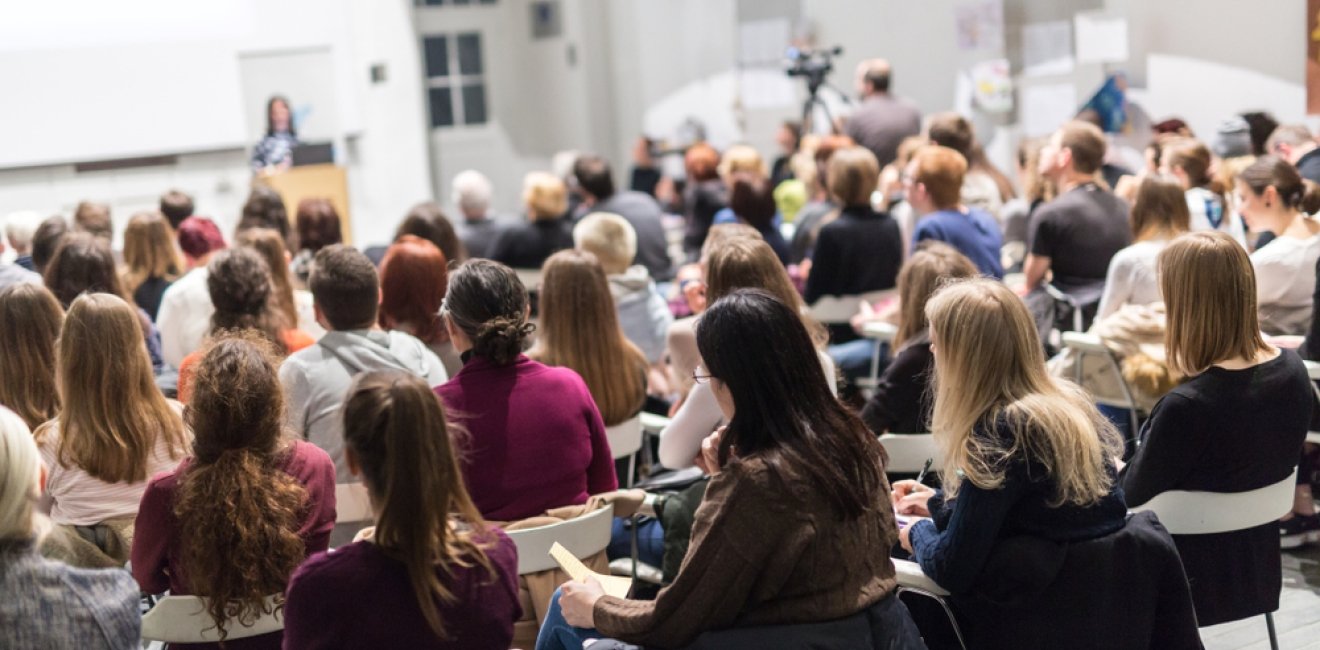Believing in oneself is crucial for the journey of inclusion. However, when culture, traditions, religion, and law discriminate against women, the question is: How can women cultivate that inner voice of belief and feel that they belong?
In the late 1990s, I left Syria to study in Canada. At that time, internet access was almost non-existent, and I had no exposure beyond my home country. Upon arrival, adapting to a new culture, language, and social norms challenged my sense of belonging.
I started my education studying computer programming, a male-dominated field, in a new culture and language. Moreover, as an international student, I had limited rights and access to resources and opportunities, which exacerbated the feeling of exclusion. While having supportive professors and meeting other international students who were going through similar experiences eased my sense of isolation, at a time of fear or struggle, navigating unfamiliar environments, I sought solace and strength from within—always relying on my inner voice of self-belief.
Belonging to oneself
After obtaining a computer programming diploma and working in IT for almost two years, I applied for immigration status and stayed in Canada. I decided to pursue a journalism degree, facing further challenges as the only non-Canadian in a competitive program where English proficiency was crucial for success. Despite graduating with high honors, as a non-native English speaker, I continued to miss many cultural nuances in the classroom and in general, including some jokes and idioms. Again, having encouraging teachers and building friendships with classmates helped me foster a better sense of belonging. However, despite my academic and professional achievements, the feeling of not belonging lingered for over a decade.
It was not until I felt that I belonged, first, to myself that I was able to truly cultivate a sense of empowerment and authenticity. I learned that belonging is an ongoing journey, and that true inclusion is not solely an external endeavor but a dynamic interplay between self-empowerment and inclusive spaces.
Belonging to oneself is an awareness of one's strengths, weaknesses, desires, and limitations. It involves a deep connection with one's own identity, values, and experiences and accepting them regardless of outside pressures or expectations.
Believing in oneself is crucial for the journey of inclusion. However, when culture, traditions, religion, and law discriminate against women, the question is: How can women cultivate that inner voice of belief and feel that they belong? Believing does not mean the absence of fear or struggle. It means persevering despite doubts, fueling genuine empowerment from within, and inspiring others to do the same.
Fostering inclusive environments
The inner voice is intertwined with the outer, which is why an inclusive environment, whether in the workplace, family, educational institutions, or broader social settings, is necessary for fostering a sense of belonging and, ultimately, empowerment. When cultural norms, laws, or religions dim the inner voice of self-belief, inclusive environments can provide safe spaces for women to embrace authenticity, or at least explore their sense of self.
In my work managing international communications projects and advising companies on gender mainstreaming, I do my best to help women see themselves reflected and represented in diverse roles and spaces, as this affirms their worth and unique contributions. When women feel acknowledged, their contributions validated, and their diverse experiences respected, they are more likely to engage in various spheres of life. Inclusion also challenges preconceived notions about gender roles, paving the way for new possibilities of what women can achieve.
A few months ago, I joined a focus group discussion with six other women from the Middle East to assess our sense of inclusion in the workplace. When asked whether we envisioned ourselves in leadership roles, I was the only one who said yes. After a moment of silence, I suggested splitting the question into two parts: first, asking if participants saw themselves as capable of leading, and second, if they believed they would be in leadership positions at their current jobs. The facilitator agreed and rephrased the question. This time, three women considered themselves leaders but did not see themselves in leading roles at their current jobs. Two women doubted their leadership skills, while another woman and I said yes to both questions. This discussion emphasized my thinking of how self-belief, coupled with opportunities, lays the foundation for genuine empowerment.
It is key that empowered women advocate for themselves and others and assert their narrative. Collaboration, especially with other women, fosters collective empowerment, and offers guidance and inspiration. The impact of inclusive environments on women's empowerment extends beyond individual success stories. It permeates communities, shaping cultural narratives and influencing systemic change. As women become architects of their narratives, challenging norms and advocating for inclusivity, they contribute to reshaping the very fabric of society.
As we celebrate International Women's Day, let us commit to inspiring inclusion that recognizes the agency of women in shaping their narratives, fostering a profound sense of belonging and relevance that transcends traditional boundaries, challenges stereotypes, and dismantles preconceived notions. Women, when inspired to embrace and assert their presence, initiate a powerful ripple effect that permeates societal structures and cultural norms that may have historically silenced them.
The views expressed in this article are those of the author and do not express the official position of the Wilson Center.








